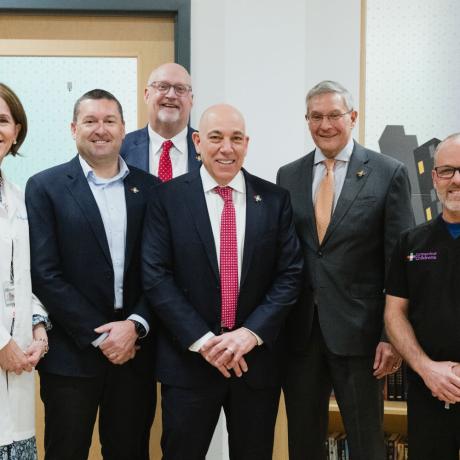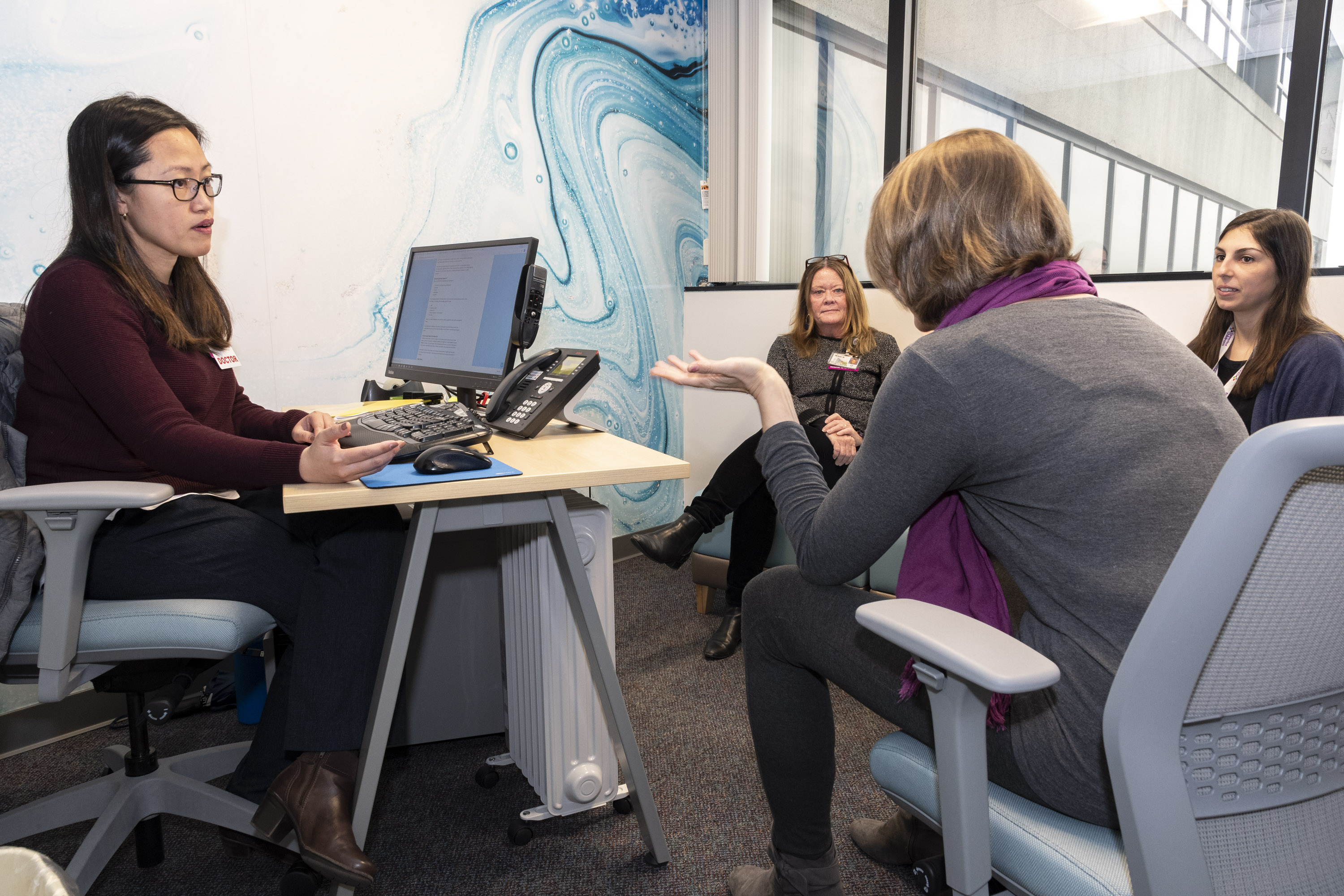A Growing Need in Connecticut
The Transitions Clinic fills a critical need for pediatric patients in Connecticut. In the United States, the average wait time between when a child is diagnosed with a mental illness and when that child actually receives care is seven years and eight months. By the time they are seen, the consequences of living with this illness can actually change the structure of their developing brains, leading to lifelong problems.
And behavioral health issues affect a surprising number of children. Nationally, the second and third most common causes of death in young people 15 to 24 years old are suicide and substance-abuse disorders. In some states they are number one and two. To make matters worse, those numbers are growing. In the 10 years between 2006 and 2016, the number of children and young adults presenting to hospital emergency departments with thoughts of killing themselves increased 106 percent, a greater increase than any other illness.
Connecticut reflects these problems as much as any state, with far too few facilities and programs for kids with behavioral health diagnoses. “You can have all the therapy you want,” says Steve Rogers, MD, Director of Emergency Behavioral Health Services, “but if the child can’t see a therapist for three weeks to three months, that’s probably not going to cut it for a kid in crisis. That’s why Transitions is such an important component of our program. They can get weekly or biweekly therapy right away.”
In the clinic’s first year of operation, the average time between a child arriving in Zone C and his or her first appointment at Transitions was seven days. And the time from that Transitions appointment to being situated with community services was about four weeks—with the child receiving care at Transitions during those four weeks.
Transitions Clinic One-of-a-Kind
Connecticut Children’s Transition Clinic is the first of its kind in the state, opening on Martin Luther King Jr. Day, January 21, 2019.
“We chose that date because it was part of our normalizing behavior in saying, ‘The way we believe in equal rights for all, we believe in equal access to care for kids with behavioral health care needs.’ We chose that emblematic date to go live,” said Glenn Focht, MD, President of Connecticut Children’s Specialty Group. “For a program that didn’t exist until then, it is pretty powerful.”
“Ultimately, what it came down to is our kids were stuck in the Emergency Department with nowhere to go, with no services, with no ability to connect to anything,” said Jessica St. Louis, LCSW, Assistant Manager for Behavioral Health, Social Work. “So, our teams met to discuss how we could get them out of the ED more quickly and have access to psychiatric services in 24-48 hours, which is our goal.”
After looking at programs and models in other healthcare systems, the team found an urgent-care clinic model and adapted it. The Clinic provides follow-up within days of discharge from the ED.
“We developed a model for intake that is different from anything else,” Jessica said. “We have a psychiatrist, social worker and a care coordinator all present for that first visit; that way, families don’t have to explain time and time again what it is that happened.”
The Clinic offers services for patients as young as age 5, while many other programs in the state offer services to kids 12 and older. By November 18, 2019, 157 patients had been referred to the Clinic from Zone C; in the first seven months of operation, approximately one third of them were between the ages of 5 and 11.
The Busy Season
“When we talk about our ‘busy season’ for Behavioral Health, it’s the school year,” Jessica said. “It’s September to June.”
By October or November, there are extensive waiting lists for psychiatric providers, in-home providers and other types of services, Jessica explained. The goal is to have all necessary community services in place for each child within a two-month timeframe.
“Psychiatry services are only available three days a week right now, but hopefully, early this year we will be able to offer five days a week,” she said. Our ultimate goal is to provide at least six days of coverage in the clinic per week.”
Currently, all patients admitted to the Transitions Clinic are referred from Zone C.
“The Transitions Clinic gives families hope–and it gives our kids hope,” Jessica said. “It gives our kids hope that people are going to pay attention and are going to help them.”
If you would like to help Connecticut Children’s provide essential Behavioral Health services for children in crisis, won’t you please consider a gift today?
Make a Gift



